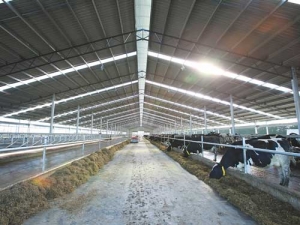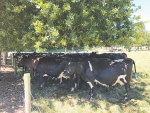It's been a long time since this writer went to a pop concert, but the young people down our way tell me that if it gets too hot for the seething masses in the mosh pit, the organisers turn on misting cannons to cool them.
Fogging (misting) has been used commercially for years, notably in shopping malls in Asia to cool passers-by. It controls odours at waste sites and piggeries, and suppresses dust at quarries or in places where fine particulate create a risk of explosion.
During hot dry summers, dairy stock can be susceptible to heat-stress, knocking back production. A case for fogging? Probably. US studies show that keeping cows cool can increase production up to 5% per cow per day, as the cows spend more time ruminating, and putting energy into milk production, than using energy to stay cool; cool cows showed better feed conversion rates.
High pressure fogging works on the basis that when tiny water droplets are produced in a warm environment they evaporate, absorbing heat from the air. Because water requires more energy to remain in a gaseous, rather than a liquid, state, so when it evaporates it absorbs energy (in the form of heat) from the air. Hence when you emerge from a swimming pool on a hot day you feel cooler than while swimming because the water evaporates from your skin.
For a cooling effect, much depends on the ambient temperature and the level of humidity, but with a mid-afternoon temperature of, say, 23 degrees C and a humidity content of 70%, temperature reduction can be 6-8 degrees C.
BiOx International, Mount Maunganui, sells fogging/misting plant – high pressure, low volume -- that can be customised for individual set-ups (differing building shapes/sizes). These rely on generating water droplets of 5-15 microns at about 1000psi pressure from very fine nozzles; the resulting water droplets evaporate almost instantaneously and remove the latent heat. The instant evaporation ensures surfaces are not wet to the touch.
The systems typically consume 60ml per nozzle per hour, hence 100 nozzles covering some 600-1000m would use about 6L/m – half that issuing from a home garden hose.
www.bioxinternational.com


















